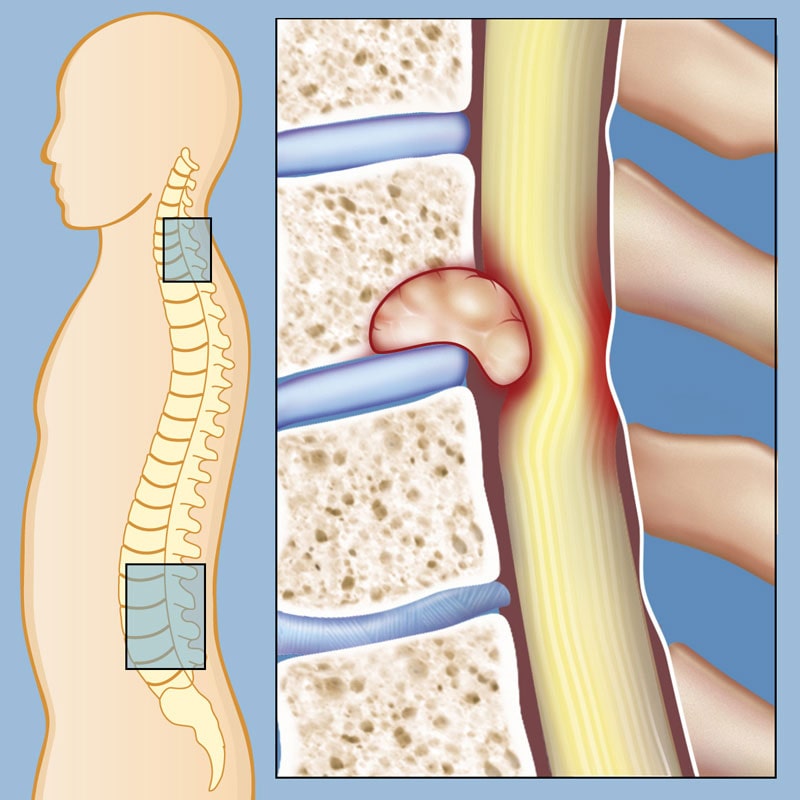What Are Spinal Tumors?
Spine tumors may arise from any of the structures of the spine or the spinal column. They may arise in the cervical (neck), thoracic (midback) or lumbosacral (low back) regions. They may originate in the spinal cord itself, the spinal roots, the dural sac which surrounds the spinal cord, or the vertebrae (bones). They may be primary—originating from the spine or spinal cord, metastatic, or originating elsewhere (ie, lung, breast, etc).
What Are the Symptoms?
Neck or back pain are common presenting symptoms of spinal cord tumors. The pain is often present at night and is worsened with physical activity. The symptoms associated with spinal cord tumors may also vary depending on the level of involvement. Cervical (neck) tumors may cause weakness or numbness in the arms or legs. Thoracic (mid-back) and lumbosacral (lowback) tumors may cause weakness or numbness in the chest area or legs. Also, difficulty walking
is a common complaint.

How Is a Spinal Tumor Diagnosed?
- The diagnosis of a spinal tumor begins with the history and physical examination. Patients may present with a past medical history of cancer and new, severe back pain.
- Your doctor may order imaging studies that include plain X-rays, computerized tomography (CT or CAT) scans and MRIs.
- Sometimes it is necessary to undergo additional, more specialized testing in order to clearly define a suspected tumor. Positron emission tomography (PET scans) and nuclear medicine bone scans may be ordered by your doctor to aid in the diagnosis.
What Are the Treatment Options?
The nonsurgical options for treating spinal tumors include observation, chemotherapy and radiation therapy. Some tumors that are not causing major symptoms and do not appear to be aggressive in their behavior may be observed and followed with serial imaging (usually MRI). Additionally, some tumor types are sensitive to chemotherapy and/ or radiation therapy. For these tumor types, a course of chemo- or radiation therapy may be the first line of treatment.
Surgery for a spinal tumor is generally indicated for progressive motor weakness or loss of bowel or bladder control of short duration. In addition, surgery may be required in situations where the spine has become unstable because of the tumor. Surgery may be the only available intervention for some tumors that are insensitive to radiation or chemotherapy.
